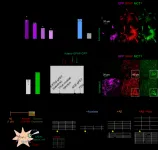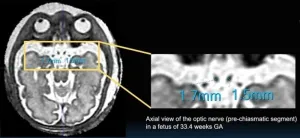(Press-News.org) ABSTRACT: CT005
ORLANDO, Fla. ― A regimen of pre-surgical immunotherapy and chemotherapy followed by post-surgical immunotherapy significantly improved event-free survival (EFS) and pathologic complete response (pCR) rates compared to chemotherapy alone for patients with operable non-small cell lung cancer (NSCLC), according to Phase III trial results presented today by researchers from The University of Texas MD Anderson Cancer Center at the American Association for Cancer Research (AACR) Annual Meeting 2023.
The AEGEAN trial evaluated durvalumab given perioperatively, meaning therapy is given both before and after surgery. Participants on the trial received either pre-surgical (neoadjuvant) durvalumab and platinum-based chemotherapy followed by post-surgical (adjuvant) durvalumab or neoadjuvant placebo and chemotherapy followed by adjuvant placebo.
These represent the first data presented on the benefits of perioperative immunotherapy for resectable NSCLC and adds to the growing evidence supporting the benefits of both neoadjuvant and adjuvant immunotherapy for these patients.
“Our goal is to increase cures for lung cancer. Throughout decades of research with adjuvant and neoadjuvant chemotherapy, we only succeeded in increasing cures by around 5%,” said principal investigator John Heymach, M.D., Ph.D., chair of Thoracic/Head & Neck Medical Oncology at MD Anderson. “This one study alone has the potential to increase that percentage significantly, and we look forward to many more improvements going forward.”
Of the patients receiving perioperative durvalumab, 17.2% had a pCR compared to just 4.3% of those receiving chemotherapy alone. At the first interim analysis of EFS, with a median follow-up of 11.7 months, the median EFS was 25.9 months in the placebo arm, but it had not yet been reached in the durvalumab arm.
These data correspond to a 32% lower chance of patients experiencing disease recurrence, progression events or death with the immunotherapy-based treatment when compared to chemotherapy alone. Approximately four times as many patients treated with perioperative durvalumab plus chemotherapy achieved a pCR when compared to those treated with chemotherapy alone.
Durvalumab, an immune checkpoint inhibitor targeting PD-L1, has previously been approved for treating specific patients with biliary tract cancer, liver cancer, small cell lung cancer and NSCLC. Currently, durvalumab is used for treating patients with locally advanced, unresectable NSCLC following definitive chemoradiotherapy and for patients with metastatic NSCLC in combination with tremelimumab and platinum-based chemotherapy.
For resectable NSCLC, previous studies have shown some benefit from using adjuvant or neoadjuvant immunotherapy, but Heymach explained the benefits have been modest so far. MD Anderson is engaged in longstanding multidisciplinary efforts to use neoadjuvant treatments to improve outcomes for patients. Numerous clinical studies, such as the NEOSTAR and NeoCOAST trials, are evaluating neoadjuvant immunotherapy and novel combinations to eliminate viable tumors before surgery and to reduce recurrence rates.
The Phase III AEGEAN trial is a randomized, double-blind, placebo-controlled study to evaluate the benefits of perioperative durvalumab added to platinum-based chemotherapy in adults with untreated stage IIA-IIIB NSCLC. A total of 802 patients were randomized 1:1 into each arm. The study’s primary endpoints are pCR, assessed by a central lab, and EFS using a blinded independent central review.
Patients with EGFR/ALK mutations were excluded from the modified intent-to-treat population. A total of 740 patients were included in the efficacy analysis, including 366 on the durvalumab arm and 374 on the placebo arm. The median age of participants in each arm was 65 and 71.6% were male. Patients were 53.6% white, 41.5% Asian and 4.9% other.
Overall, the treatments were well tolerated and side effects were consistent with previous studies. The researchers observed maximum grade 3-4 any cause adverse events in 42.3% and 43.4% of patients on the durvalumab and placebo arms, respectively.
The benefits in both pCR and EFS largely were consistent across predefined patient subgroups, and the trial continues assessment for long-term EFS as well as disease-free survival and overall survival outcomes.
“This study shows that a combination of neoadjuvant and adjuvant durvalumab offers benefit for patients and may have the potential to change standard-of-care for patients with resectable non-small cell lung cancer,” Heymach said. “Going forward, we face a series of questions about how to build more effective regimens without giving more treatment than is necessary.”
Heymach explained that future studies must determine which patients receive the most benefit from neoadjuvant therapy and may be able to avoid further treatment as well as those who remain at high risk of recurrence and may require more intensive adjuvant regimens.
The study was conducted by AstraZeneca. Heymach serves on advisory committees for Genentech, Mirati Therapeutics, Eli Lilly & Co, Janssen Pharmaceuticals, Boehringer Ingelheim, Regeneron, Takeda, BerGenBio, Jazz Pharmaceuticals, Curio Science, Novartis, AstraZeneca, BioAtla, Sanofi, Spectrum Pharmaceuticals, GSK, EMD Serono, Blueprint Medicines and Chugai Pharmaceutical. He receives research support from AstraZeneca, Boehringer Ingelheim, Spectrum, Mirati Therapeutics, Bristol Myers Squibb and Takeda, as well as royalties and licensing fees from Spectrum. A full list of collaborating authors and their disclosures can be found here.
- 30 -
END
AACR: Lung cancer outcomes significantly improved with immunotherapy-based treatment given before and after surgery
Phase III trial finds 32% lower chance of disease recurrence, progression or death with immunotherapy plus chemotherapy versus chemotherapy alone
2023-04-16
ELSE PRESS RELEASES FROM THIS DATE:
A new breakthrough in Alzheimer disease research - visualizing reactive astrocyte-neuron interaction
2023-04-16
Recently, a team of South Korean scientists led by Director C. Justin LEE of the Center for Cognition and Sociality within the Institute for Basic Science made a new discovery that can revolutionize both the diagnosis and treatment of Alzheimer’s Disease. The group demonstrated a mechanism where the astrocytes in the brain uptake elevated levels of acetates, which turns them into hazardous reactive astrocytes. They then went on further to develop a new imaging technique that takes advantage of this mechanism to directly observe the astrocyte-neuron interactions.
Alzheimer’s disease (AD), one of ...
Statin use is associated with lower risk of stroke in patients with atrial fibrillation
2023-04-16
Barcelona, Spain – 16 April 2023: A region-wide study in more than 50,000 patients with atrial fibrillation has found reduced risks of stroke and transient ischaemic attack in those who started statins within a year of diagnosis compared with those who did not. The findings are presented at EHRA 2023, a scientific congress of the European Society of Cardiology (ESC).1
“Our study indicates that taking statins for many years was even more protective against stroke than short-term use,” said study author Ms. Jiayi Huang, a PhD student at the University of Hong Kong, China.
Atrial fibrillation is the most common ...
ARRS Annual Meeting: 3D SVR MRI helps delineate fetal optic nerve pathway
2023-04-16
Honolulu, HI | April 16, 2023—An award-winning Scientific Online Poster presented during the 2023 ARRS Annual Meeting on the island of Oahu explained how the novel technique of three-dimensional (3D) slice-to-volume (SVR) MRI allows for precise delineation and measurement of the fetal optic pathway (FOP).
Noting the limited fetal presentation and low reproducibility of ultrasound-based techniques, as well as conventional MRI’s inconsistencies in FOP visualization due to low resolution (i.e., large slice thickness), “our preliminary results nevertheless demonstrate the promises and utility of this technique,” said Eric Juang, MS, of Creighton University ...
Erik Paulson gaveled in as president of American Roentgen Ray Society (ARRS)
2023-04-16
Honolulu, HI | April 16, 2023—Erik K. Paulson, MD, chair of the radiology department at Duke University, has been named the 123rd President of the American Roentgen Ray Society (ARRS) during the opening ceremony of the 2023 ARRS Annual Meeting in Honolulu, HI.
“I am absolutely honored and delighted to serve as the President of our country’s oldest radiology society, a society whose sweet spot is member education,” Dr. Paulson said in his ARRS Annual Meeting opening remarks at ...
UK strep A research shows highest incidence of invasive disease has shifted from the most deprived groups to the second most affluent group
2023-04-16
**Note: the release below is from the European Congress of Clinical Microbiology & Infectious Diseases (ECCMID 2023, Copenhagen, 15-18 April). Please credit the conference if you use this story**
Measures introduced to reduce transmission of COVID-19 infections during 2020-2021 suppressed transmission of group A streptococcal (GAS) infections, particularly in children. Following the lifting of public health restrictions in the UK in Feb-2022, Group A Streptococcus presentations – including scarlet fever and invasive Group A Strep – rose significantly in England, although iGAS still remained very ...
Surge of strep A infections, including more dangerous invasive type, has affected Denmark since late 2022, especially in the elderly
2023-04-16
**Note: the release below is from the European Congress of Clinical Microbiology & Infectious Diseases (ECCMID 2023, Copenhagen, 15-18 April). Please credit the conference if you use this story**
During the 2022-2023 winter season Denmark experienced a surge in infections caused by group A streptococci (GAS), including the more dangerous, invasive types of infections (iGAS). Incidence of iGAS is highest among the elderly, but the largest relative increase from previous seasons was seen among children. The study is being presented to the European Congress of Clinical Microbiology & Infectious Diseases (ECCMID 2023, Copenhagen, ...
Strep A infections among children surged in France across 2022, after nearly two-years of COVID-related low case numbers
2023-04-16
**Note: the release below is from the European Congress of Clinical Microbiology & Infectious Diseases (ECCMID 2023, Copenhagen, 15-18 April). Please credit the conference if you use this story**
New research from France shows that infections cause by Group A Streptococcus (GAS) fell by 80% as the first COVID lockdown took effect in March 2020 and stayed at low levels until March 2022, from which point they increased by 18% a month to rise well above pre-COVID levels.
The study is being presented at the European Congress of Clinical Microbiology & Infectious Diseases in Copenhagen, Denmark (15-18 ...
Scientists identify compounds that reduce the harmful side effects of antibiotics on gut bacteria
2023-04-16
**Note: the release below is from the European Congress of Clinical Microbiology & Infectious Diseases (ECCMID 2023, Copenhagen, 15-18 April). Please credit the conference if you use this story**
Antibiotics help to fight bacterial infections, but they can also harm the helpful microbes living in the gut, which can have long-lasting health consequences.
Now new research being presented at this year’s European Congress of Clinical Microbiology & Infectious Diseases (ECCMID) in Copenhagen, Denmark (15-18 April) has identified ...
Disturbed sleep may partially explain post-COVID condition (long COVID) breathlessness
2023-04-16
*Note: this is a joint press release from the European Congress of Clinical Microbiology & Infectious Diseases (ECCMID) and The Lancet Respiratory Medicine. Please credit both the congress and the journal in your stories*
A major UK study has discovered that the disturbed sleep patterns in patients hospitalised with COVID-19 was likely to be a driver of breathlessness.
The study of patients in 38 institutions across the UK was led by University of Manchester and Leicester, presented at the European Congress of Clinical Microbiology & Infectious Diseases (Copenhagen, 15-18 April) and published in The Lancet ...
Bacterial consortium therapy for prevention of recurrent c difficile infection
2023-04-15
About The Study: Among adults with laboratory-confirmed Clostridioides difficile infection (CDI) with one or more prior CDI episodes in the last six months and those with primary CDI at high risk for recurrence, high-dose VE303 (a novel oral microbiome-directed therapy composed of nonpathogenic, nontoxigenic, commensal strains of Clostridia) prevented recurrent CDI compared with placebo. A larger, phase 3 study is needed to confirm these findings.
Authors: Jeffrey L. Silber, M.D., of Vedanta Biosciences Inc., in Cambridge, Massachusetts, is the corresponding author.
To access the embargoed study: Visit our For The Media website at this link https://media.jamanetwork.com/
(doi:10.1001/jama.2023.4314)
Editor’s ...
LAST 30 PRESS RELEASES:
Emerging class of antibiotics to tackle global tuberculosis crisis
Researchers create distortion-resistant energy materials to improve lithium-ion batteries
Scientists create the most detailed molecular map to date of the developing Down syndrome brain
Nutrient uptake gets to the root of roots
Aspirin not a quick fix for preventing bowel cancer
HPV vaccination provides “sustained protection” against cervical cancer
Many post-authorization studies fail to comply with public disclosure rules
GLP-1 drugs combined with healthy lifestyle habits linked with reduced cardiovascular risk among diabetes patients
Solved: New analysis of Apollo Moon samples finally settles debate about lunar magnetic field
University of Birmingham to host national computing center
Play nicely: Children who are not friends connect better through play when given a goal
Surviving the extreme temperatures of the climate crisis calls for a revolution in home and building design
The wild can be ‘death trap’ for rescued animals
New research: Nighttime road traffic noise stresses the heart and blood vessels
Meningococcal B vaccination does not reduce gonorrhoea, trial results show
AAO-HNSF awarded grant to advance age-friendly care in otolaryngology through national initiative
Eight years running: Newsweek names Mayo Clinic ‘World’s Best Hospital’
Coffee waste turned into clean air solution: researchers develop sustainable catalyst to remove toxic hydrogen sulfide
Scientists uncover how engineered biochar and microbes work together to boost plant-based cleanup of cadmium-polluted soils
Engineered biochar could unlock more effective and scalable solutions for soil and water pollution
Differing immune responses in infants may explain increased severity of RSV over SARS-CoV-2
The invisible hand of climate change: How extreme heat dictates who is born
Surprising culprit leads to chronic rejection of transplanted lungs, hearts
Study explains how ketogenic diets prevent seizures
New approach to qualifying nuclear reactor components rolling out this year
U.S. medical care is improving, but cost and health differ depending on disease
AI challenges lithography and provides solutions
Can AI make society less selfish?
UC Irvine researchers expose critical security vulnerability in autonomous drones
Changes in smoking status and their associations with risk of Parkinson’s, death
[Press-News.org] AACR: Lung cancer outcomes significantly improved with immunotherapy-based treatment given before and after surgeryPhase III trial finds 32% lower chance of disease recurrence, progression or death with immunotherapy plus chemotherapy versus chemotherapy alone



